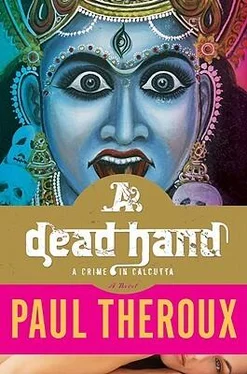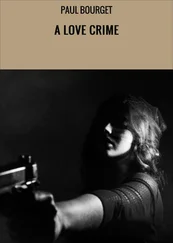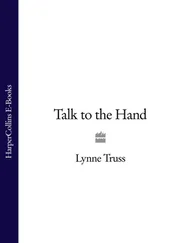I remembered Mrs. Unger saying, The real aristocrats of the world are the native peoples, the so-called tribals in India, the Mizos, the Nagas in Assam. But all I could recall of Assam was the Kamakhya temple, its floor running with blood; the child whores of Nagapatti; and the hotel room, Mrs. Unger lying beneath my trembling hands. Show me what you've learned from me.
We had come to the second floor. Chitra led me along the corridor, away from the bright front window and the growl of traffic — bells and horns and human cries, a density of noise. She opened the door to number fifteen and paused at the threshold to let me pass.
"Toggle switch for fan here," she said, flipping it, and the overhead fan croaked and began to turn like a heavy bird beginning to rise, groaning on its outstretched wings.
She placed the towel and soap on the bed and stood before me awkwardly, bowing slightly. She had a sad face, and her attempt to smile made it sadder: narrow shoulders, a thin breastless body, bony hands, skinny feet.
I held out some money, two hundred rupees that I had counted on the way up the stairs.
"Thank you, sir." And at once the money disappeared into her sari, as she hid it without looking at it.
"Chitra, I need you to help me."
She stared, fearful, widening her eyes, pressing her lips together.
"I want to look into some other rooms."
She ungummed her lips. "All locked, sir."
"But you can unlock them."
"I cannot, sir."
She looked anguished, and without another word she backed away and shut the door.
I lay on the bed listening intently — would Chitra tell the manager what I had said? I was so anxious that I was rigid, afraid to move lest I miss hearing something; and in this state of nerves I exhausted myself. I slept suddenly, dreamlessly, then woke gasping in the dark, jarred by a slamming door. Still in my clothes, I did not at first have any idea where I was. The bed stank; the dust in my nostrils alarmed me. I had the notion that someone intended to kill me. That was when I opened my cell phone and shone it around the room.
Without turning on the bedside lamp, using only the light from my cell phone, I got up and listened at the door. I could see that it was not yet nine — I'd been sleeping for about two hours. I opened the door carefully and saw that the corridor was in shadow, the only light the reflected glare from the window that gave onto the rear. I crept from one door to the next, noting the numbers, hoping that I'd find one ajar. They were locked and silent. This was not a busy hotel.
The stairwell was in shadow too. Peering down, I could see where the small lobby emitted some light onto the lower landing, but above me was only darkness. I climbed into this darkness, holding up my cell phone, taking care not to make the stairs creak.
I could just make out three numbered doors, one of them partly open. Keeping motionless, listening closely, I tried to determine whether anyone was inside. No voices, no snoring. Putting one foot slowly in front of the other, nudging the door with my knuckles, I eased it open wider.
As I lifted my cell phone it seemed to explode in my hand, jangling — a call. In a panic I stabbed at the answer button to silence it.
A squawk from the room and a rattle of an iron bed frame: a man had risen in the shadowy interior, glowing in his pajamas, flopping forward, and began berating me in Bengali.
"Can you hear me?" came from my phone, a woman's voice.
"Sorry," I said to the advancing man, and into the phone, "Yes, yes."
It was Mrs. Unger. I hurried to the stairs (the Indian in the room still hissing at me) and cupped my hand over my phone. "I have some news."
"What is it? Where are you?"
"In the hotel." I was whispering, padding down the stairs, now at my own landing, hurrying to my room.
"I can't hear you."
"I've made a breakthrough. I've got a very good lead. I can't talk now."
"Are you all right?"
"I'm fine. I need to see you."
"I'll be fascinated to know what you found. It's so important to clear Rajat. I'm sure that he was so upset he was imagining it."
"It's not just that. I want to be with you. I've been missing you. But I'm also doing some good work — writing. I've got you to thank for that."
"I want to energize you."
"You've done that."
"If you don't mind!" A shout from behind a door, the voice of an angry woman.
I was in the corridor outside my room, but excited, hearing Mrs. Unger, I'd begun to raise my voice.
I slipped into my room, saying, "They can hear me. I'll call you back."
"Don't bother. Concentrate on what you're doing. I can tell you're preoccupied."
Mrs. Unger's call could not have come at a worse time, disturbing the man in pajamas whose door was ajar, the shrieking woman in the room across the hall from me. But I was also secretly pleased: Mrs. Unger could see that I was acting on her behalf, going to some trouble for her. She'd interrupted me in the act. I was happy, proving that I wanted to help her. I knew that she was somewhere being virtuous — helping a child, healing someone who was miserable or ill, making a sacrifice. It was important for me to show her that I was on her side. That night, I dreamed of her, but it was an ugly dream, of Mrs. Unger transformed into a demon, and I woke up ashamed and hot.

THE POOR IN INDIA wake up early. At dawn everyone looks destitute. It sometimes seems as though they never sleep. I heard rattling in the corridors of the Ananda. In the dusty light I looked out and saw Chitra with a bucket. I found something incongruous about a young woman in a bright flowing sari, draped in yellow, carrying a mop and a sloshing pail. I remembered the women in colorful saris at the building site, lugging gravel in baskets. Chitra looked graceful and out of place. She looked cursed, as if a spell had been cast upon her and she'd found herself with a bucket and a mop.
"Good morning, sir."
" Namashkar , Chitra." She seemed pleased that I'd remembered her name. I watched her as she walked to the end of the corridor, rapped on a door, lifted a key ring from a chain at her waist, and fit a key to the lock.
Moving quickly, I got to the door before she closed it. She began to object, but I put my finger to my lips, shushing her. That made her smile. I then handed her two hundred rupees. She smiled again, and she folded the money into her bodice.
"I'm looking for something," I said softly.
What was I looking for? I hardly knew. A clue, a connection, a floral carpet, something to link the dead child to the hotel. My idea was that I was more likely to find this unknown thing in one of the empty rooms.
I watched Chitra mop the floorboards and the bathroom tiles, filthy mop on dirty floor, shoving scum back and forth. She then used a straw hand broom to whisk the dirty carpet. This was a gesture at cleaning, going through the motions; the carpet was industrial, gray, not woven, nothing special.
What I took to be a stain in the next room she cleaned was a dead mouse, flattened, dried out in death. Chitra swung it by its tail into a plastic bag. In the third room the bed had been stripped to its lumpy and discolored mattress. Chitra seemed not to notice anything, but only to go about her work, slapping the painted wood floor with her filthy mop, whisking the carpet with her old-fashioned broom.
What was I looking for? The answer was: anything. I was sweating with distraction, because everything was a clue, and nothing added up.
"What you are doing, mister?" The yell behind me was like a thump on my head. I turned and saw the manager's furious eyes, his reddened teeth, Mr. Biswas at his craziest. He shifted a lump of spittle-sodden pan from one cheek to the other, then shook his bony fists and began to scold again. "You having no business in private rooms!"
Читать дальше













